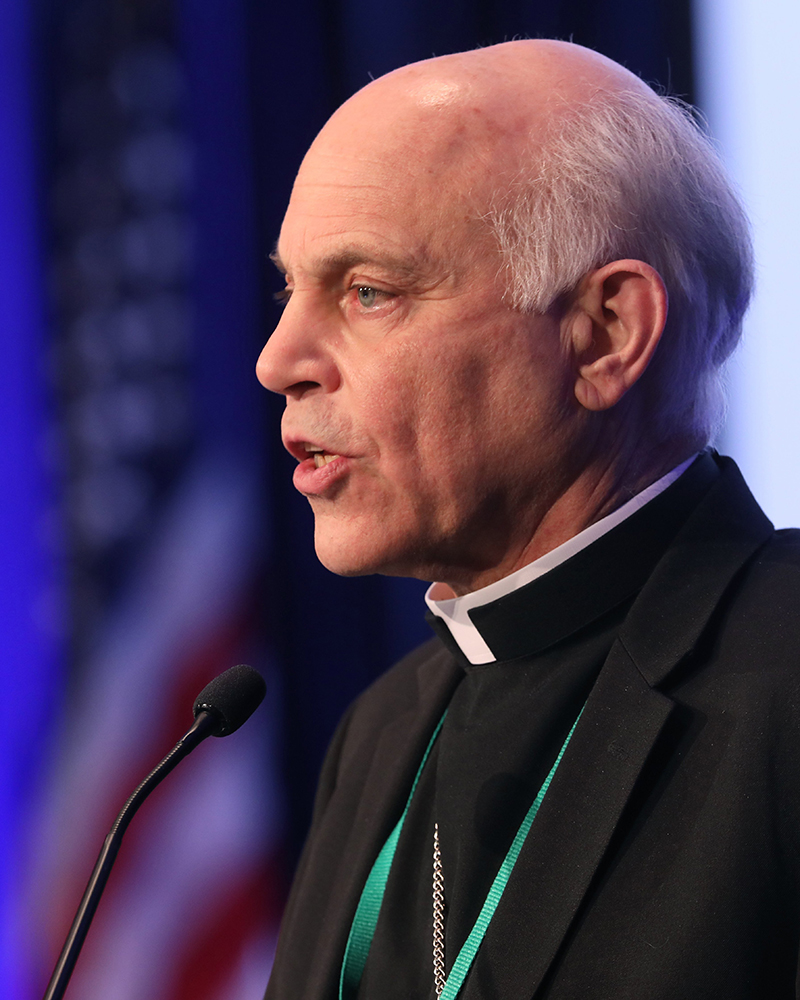
WASHINGTON — The Archdiocese of San Francisco filed for bankruptcy Aug. 21 amid more than 500 lawsuits it is facing alleging child sexual abuse by Church officials.
“The unfortunate reality is that the archdiocese has neither the financial means nor the practical ability to litigate all of these abuse claims individually, and therefore, after much consideration, concluded that the bankruptcy process was the best solution for providing fair and equitable compensation to the innocent survivors who have been harmed,” San Francisco Archbishop Salvatore Cordileone said in a statement.
He said the filing was the best way to also allow the archdiocese to “continue its sacred mission to the faithful and those in need.” He also noted that the archdiocese must “seek purification and redemption to heal, especially survivors who have carried the burdens of these sins against them for decades.”
Archdiocesan parishes, schools, cemeteries and related organizations, and ministries are not included in the filing, according to an archdiocesan statement that also said this step will stop all legal actions against the archdiocese while it “develops a plan of reorganization that is based on assets and insurance coverage available to be used to settle claims with abuse survivors.”
The archdiocese said that the majority of the more than 500 claims stem from allegations of sexual abuse that occurred 30 or more years ago involving priests who are no longer active in ministry or are deceased.
San Francisco is the third archdiocese in California to file for bankruptcy this year, following the dioceses of Oakland and Santa Rosa, which did so in the spring also because of the number of sexual abuse lawsuits filed against them. The Diocese of San Diego has announced that it plans to file bankruptcy later this year.
Currently, 12 U.S. dioceses and archdioceses are in bankruptcy proceedings and 24 bankruptcy cases filed by Catholic religious organizations in recent years have ended, according to a tally kept by Penn State Law School.
On its website, the San Francisco Archdiocese said the lawsuits brought against the archdiocese stemmed from the California Assembly Bill 218, which allowed decades-old claims to be filed by Dec. 31, 2022, lifting the statutes of limitations.
It also noted that this is the second time the state has “allowed time-barred or expired cases of child sexual abuse to be filed by alleged survivors,” pointing out that in 2003, California created a similar window. Since that time, the archdiocese has paid more than $70 million to survivors in legal settlements by using insurance funds and selling excess property.
An Aug. 21 statement by the Survivors Network of those Abused by Priests, said it hopes the federal judge will examine this case carefully, saying it does not think the archdiocese is “as financially strapped as it claims.”
It also noted, as have attorneys for abuse survivors, that the Archdiocese of San Francisco has “repeatedly declined to divulge names of the [abuse] perpetrators” within the archdiocese, which has “kept parishioners and the public unaware” of who they are.
In his statement, Archbishop Cordileone said, “Occurrences of abuse within the Catholic Church are very rare,” adding that with the current “educational and preventative measures now in place, I believe the Church has set the standard for other organizations, showing what can and should be done to protect our children.”
In a letter to archdiocesan Catholics, the archbishop asked them to join him in prayer for the archdiocese, parish communities, schools, and all survivors of sexual abuse, noting that “now more than ever, we need to take recourse to prayer.
“While the great majority of these sins were committed many decades ago, it will be a sign of Christian solidarity for us to join together on a daily basis in praying the rosary, spending an hour each week in adoration before the Blessed Sacrament, and fasting on Fridays for the survivors of abuse, for the mission of our archdiocese, and for the eradication of this shameful crime from our society as a whole,” he said.
